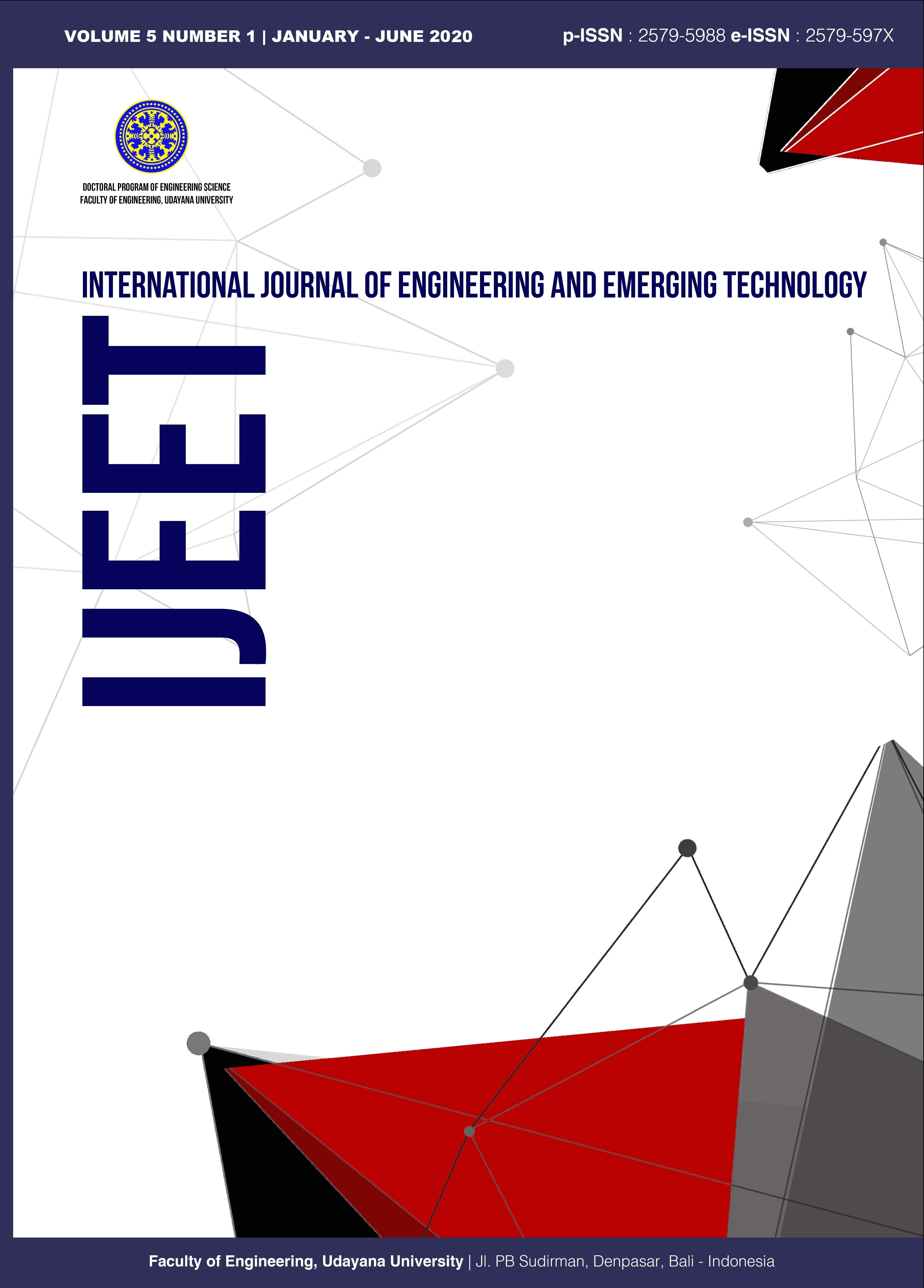Stemming Algorithm for Indonesian Signaling Systems (SIBI)
Abstract
The Indonesian Language Sign System (SIBI) is a medium used by deaf people to communicate with the wider community. SIBI is Indonesian that is presented by hand. The sentence structure (morphology) of SIBI is the same as the Indonesian language, SIBI also recognizes the prefix, principal and suffix sign word. This research discusses how to make stemming for SIBI, the algorithm used for stemming is Nazief Adiri. Stemming for SIBI separates input sentences, words through the Text Processing process. Then the word in Stemming so that it can be separated into prefix, main, and suffix words. After stemming, the words obtained in indexing can find the right SIBI, by using ID. Good stemming must pay attention to Indonesian Morphology. The number of words used for this stemming trial is 50 words. By using the Confusion Matrix method found 0.94% accuracy, 93% recall, and 84% precision.
Downloads
References
[2] M. Retno, Meningkatkan Kemampuan Memahami Bacaan Pada Pelajaran Bahasa Indonesia Dengan Media Sistem Isyarat Bahasa Indonesia (Sibi ) Siswa Kelas Dasar 2 ( D2 ) Slb-B Yakut Purwokerto Tahun Pelajaran 2008/2009. UNS, Surakarta , 2009, pp. 1–77.
[3] J.L. Luckner, and C. Cooke “A Summary of the Vocabulary Research With Students Who Are Deaf or Hard of Hearing,” American Annals of the Deaf., 2010, pp. 36–67.
[4] G. Septian, A. Susanto and G. F. Shidik , Indonesian news classification based on NaBaNA . International Seminar on Application for Technology of Information and Communication (iSemantic) , Semarang, 2017, pp. 175-180, doi: 10.1109/ISEMANTIC.2017.8251865.
[5] D. S. Maylawati, W. B. Zulfikar, C. Slamet, M. A. Ramdhani and Y. A. Gerhana, An Improved of Stemming Algorithm for Mining Indonesian Text with Slang on Social Media, International Conference on Cyber and IT Service Management (CITSM), Parapat, Indonesia 2018, pp. 1-6
[6] D. E. Cahyani, L. Merta Tri Utami and H. Setiadi, Clustering of Javanese News in Krama Alus Level with Javanese Stemming, International Conference on Information and Communications Technology (ICOIACT), Yogyakarta, Indonesia, 2019, pp. 462-467.
[7] M. N. Baehaqi, M. Irzal and F. H. Indiyah, Morphological Analysis of Speech Translation into Indonesian Sign Language System (SIBI) on Android Platform, International Conference on Advanced Computer Science and information Systems (ICACSIS), Bali, Indonesia, 2019, pp. 205-210
[8] F. San, Investigation of Translator Training Departments’ Course Contents with Regards to Language of Instruction, Social and Behavioral Sciences, 2015, pp. 869-876.
[9] H. Joshi, J. Pareek, R. Patel and K. Chauhan, To stop or not to stop -Experiments on stopword elimination for information retrieval of Gujarati text documents, International Conference on Engineering (NUiCONE), Ahmedabad, 2012, pp. 1-4
[10] J. K. Raulji and J. R. Saini, Generating Stopword List for Sanskrit Language, International Advance Computing Conference (IACC), Hyderabad, 2017, pp. 799-802.
[11] S. R. Manalu, Stop words in review summarization using TextRank, International Conference on Electrical Engineering/Electronics, Computer, Telecommunications and Information Technology (ECTI-CON), Phuket, 2017, pp. 846-849.
[12] A.K. Fahmi, Analisis Kesalahan Gramatikal Teks Terjemah (Indonesia-Arab) Dalam Pendidikan Bahasa Arab,2016, pp. 105-116
[13] I. Ilmi, Morphological Errors On Arab-Indonesia Translation Text Using Google Translate, Journal Arabic Learning, 2019, pp. 175-185
[14] R. A. Ramadhani, I. K. G. D. Putra, I. M. Sudarma and I. A. D. Giriantari, Database of Indonesian Sign Systems, International Conference on Smart Green Technology in Electrical and Information Systems (ICSGTEIS), Bali, Indonesia, 2018, pp. 225-228
[15] J. L. Garcia-Balboa, M. V. Alba-Fernandez, F. J. Ariza-López and J. Rodriguez-Avi, Homogeneity Test for Confusion Matrices: A Method and an Example, International Geoscience and Remote Sensing Symposium, Valencia, 2018, pp. 1203-1205.
[16] L. Chen and H. L. Tang, Improved computation of beliefs based on confusion matrix for combining multiple classifiers, Electronics Letters, vol. 40, no. 4, pp. 238-239, 19 Feb. 2004
[17] F. J. Ariza-Lopez, J. Rodriguez-Avi and M. V. Alba-Fernandez, Complete Control of an Observed Confusion Matrix, Geoscience and Remote Sensing Symposium, Valencia, 2018, pp. 1222-1225
[18] Y. Xiong, Building text hierarchical structure by using confusion matrix, International Conference on BioMedical Engineering and Informatics, Chongqing, 2012, pp. 1250-1254.
[19] Kamus Bahasa Indonesia, Pusat Bahasa, Jakarta, 2008.
[20] X. Lin, J. Yang and J. Zhao, The text analysis and processing of Thai language text to speech conversion system, International Symposium on Chinese Spoken Language Processing, Singapore, 2014, pp. 436-436.
[21] S. Shi, T. Cheng, S. Xiao and X. Lv, "Text Processing in Video Frames with Complex Background," 2009 International Forum on Information Technology and Applications, Chengdu, 2009, pp. 450-454
[22] R. B. S. Putra and E. Utami, Non-formal affixed word stemming in Indonesian language, International Conference on Information and Communications Technology (ICOIACT), Yogyakarta, 2018, pp. 531-536
[23] K. Khotimah, Analysis Of Indonesian Affixes In English Words Found In Mobile Guide Edition: 54-59, Universitas Diponogoro Semarang, Semarang, 2012..
[24] Anonim, Kamus Sistem Isyarat Bahasa Indonesia, Departemen Pendidikan Nasional, Jakarta, 2001.

 Indexed By
Indexed By







